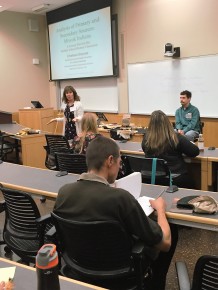Imagine your reaction if your elementary aged child came home from school and announced that in order to get a passing grade in a class that they will have to construct a model that recreates the Twin Towers while under attack. Certainly, your sensibilities as with most of us who experienced the horror, the sadness, and the anger of the 9/11 attack would be offended by such an expectation. For those with any leanings of national unity the assignment strikes as an insult to our identity. As a nation, we honor the lives of those we lost and those who gave their lives to save others. We do not hint nor imbed in the minds and hearts of our children that the act, itself, is cause for celebration. The symbol of destruction is not commemorated.
Nonetheless, every year across schools in California, children are required to recreate a California Mission and, often across the country, are expected to flex their artistic abilities as they put crayon to construction paper in portrayal of the three ships that sailed across the Atlantic in 1492. The Spanish Missions and the three ships are symbols of Spanish Imperialism. In the psyche of most U.S. Americans, these symbols may be innocuous, yet, to millions of people who are of indigenous ancestry, they represent acts just as injurious to our psyche as the images of the twin towers while under attack.
Trust and respect of the classroom teacher are major requisites to the teacher-student relationship. If a child feels safe in their learning environment, then they are more likely to learn from their teacher. Once this relationship is compromised, however, it can be difficult for the teacher to regain a child’s trust and respect once the child has psychologically withdrawn in order to safeguard their spirit. In the end, people will not learn from someone who they do not trust.
Many in the teaching ranks have recognize that when curriculum reflects, embraces, and celebrates a position that brought genocide to millions, that the relationship between teacher and student (and their family) is compromised. Historical trauma is re-enacted by what is taught. Yet, the question for teachers who have questioned the long standing allegiance in our curriculum that celebrates Spanish Imperialism at the expense of indigenous/Native American communities is how to include Indigenous/Native American orientation and perspective in a curriculum that for many years has been devoid of their voice?
 The collaboration of tribal community cultural experts and educators from academia to the classroom provides an answer to the previous question. At the 30th Annual California Indian Conference (CIC) hosted at U.C. Berkeley from October 15-17, the first annual Education Summit rolled out curriculum for teachers to adopt in their classrooms. The material, vetted by tribal community cultural experts, provided easy to adopt lesson plans that not only honors our Indigenous/Native American heritage but promotes the capacity of ALL children to learn an orientation from those who have lived on this land for thousands of years.
The collaboration of tribal community cultural experts and educators from academia to the classroom provides an answer to the previous question. At the 30th Annual California Indian Conference (CIC) hosted at U.C. Berkeley from October 15-17, the first annual Education Summit rolled out curriculum for teachers to adopt in their classrooms. The material, vetted by tribal community cultural experts, provided easy to adopt lesson plans that not only honors our Indigenous/Native American heritage but promotes the capacity of ALL children to learn an orientation from those who have lived on this land for thousands of years.
What would we want our children to celebrate? Certainly not the imperialism of foreign countries. For this reason, there will be a 2nd Annual Education Summit at the next CIC which will be hosted at San Diego State University in Fall of 2016. While our team of teachers, cultural experts, and university professors search for additional ways to roll out a proposed Framework for teaching California Indian history, we celebrate the model of collaboration, unity, and inclusion in this ground swell effort. We also honor the resilience, heritage, and voice of Indigenous/Native American communities.
For all of Cloaking Inequity’s posts on Native Americans and Education click here.
Please Facebook Like, Tweet, etc below and/or reblog to share this discussion with others.
Want to know about Cloaking Inequity’s freshly pressed conversations about educational policy? Click the “Follow blog by email” button on the home page.

I think I put dessert — it’s Halloween after all.
LikeLike
Thank you so much!! We tried to tell teachers at my daughter’s school back in 1990 not to assign this, to change the curriculum, but they wouldn’t do it. As I think about this now, I am curious as to why my fourth grade teacher back in 1956 assigned us the California dessert. I don’t remember being taught the Imperialism of the Spanish, et al. Thank you for framing this as you did to make it clearer to those who might not get it.
LikeLike
I am pleased to know they are making progress in California. I was fortunate to attend a teacher workshop in Washington State that introduced a thorough K-12 curriculum “Washington Tribal Sovereignty” http://www.indian-ed.org/ I currently live in Massachusetts (Cape Cod – home of the Wampanoag). They need some serious cultural sensitivity training here, and a curriculum.
LikeLike